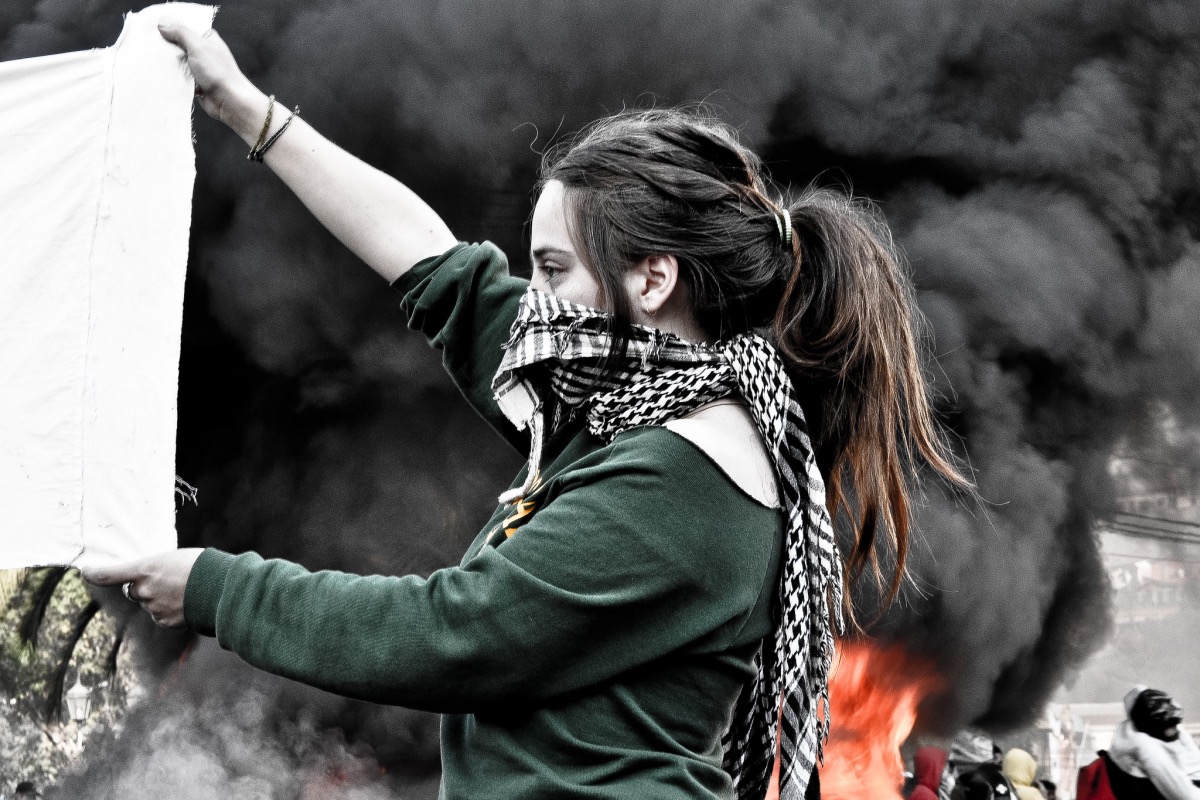SANTIAGO, Chile — After the mega elections on Sunday, November 21, in which 47 percent of eligible Chileans participated —7.1 million out of 15 million potential voters— things in Chile haven’t calmed down. With no presidential candidate winning a majority of the votes, the top two candidates are set to face off in a second round of voting on December 19.
Half of the country is trying to get the other half to vote not only for its candidate but really for the kind of society that it wants for the next four years. On one side is the project of continuing a free-market economy that reaps benefits only for a minority along with evermore repression during the Estallido Social, the “social outburst” or wave of protests that began in October 2019. On the other side is the proposal of universal social rights such as education and health along with the promise to obey the new constitution being written by the Constitutional Convention.
The two front-runners couldn’t be any more different: José Antonio Kast, 55, of the far-right Social Christian Front, is a lawyer and fervent admirer of General Augusto Pinochet; and Gabriel Boric, 35, of the leftist Apruebo Dignidad, was president of the Student Federation of the University of Chile (FECH) during the massive student protests in 2012.
Kast obtained 27.9 percent of the vote and Boric obtained 25.8 percent, or almost two million votes and 1.8 million, respectively.
The rest of the votes were divided among third placer Franco Parisi of the Partido de la Gente (People’s Party), a populist engineer who says he belongs neither to the left nor to the right; Yasna Provoste, a senator of the now-defunct Concertación, the center-left coalition that governed Chile from 1990 to 2010 and continued the free-market economics of the dictatorship; Sebastián Sichel, the favorite of current President Sebastián Piñera’s liberal right; Marco Enríquez-Onemani, a progressive; and Eduardo Artés, a Stalinist who admires North Korea.
Little has changed since the first, massive wave of protests in October 2019, and in fact, things have gotten worse. Hundreds of political prisoners remain in prison or are under arrest awaiting trial. Almost 500 people suffered ocular trauma during the protests, having been hit in the face either by rubber bullets or tear gas canisters, and haven’t received justice —the reparation programs are barely working. Dozens were killed during the protests, many of them at the hands of the army and the militarized police (the Fuerzas Especiales, now called Public Order Control, or COP).
Although the Constitutional Convention has the potential to write a new constitution that could create the right to housing, education, and healthcare along with LGBT rights, women’s rights, workers’ rights and recognizing Chile as a plurinational state, the media has not stopped trying to delegitimize the assembly’s work.
Each of the two remaining candidates is trying to convince the country to vote for his program.
Kast, the son of a Nazi soldier who came to Chile after the end of World War II, is what we might call a neo-fascist. He plans to persecute the “ultra-left” during his government along with other controversial measures such as raising the retirement age to 75, proposing the elimination of the National Human Rights Institute, firing 30,000 public workers, putting a “ditch” in the northern border to stop people from crossing, and privatizing an already extremely privatized healthcare system. He opposes abortion and LGBT marriage and has received support from prominent right-wing parties and Pinochet supporters, all of whom are members of Sebastián Piñera’s government.
The words "right wing", "fascist" get thrown around a lot these days, and people often seem to consider them as exaggerations. Not in the case of this next election in Chile, with "this guy": https://t.co/fqrvcO95GX
— Billy Gould (@MRGOULD) November 25, 2021
If Kast is elected, people fear that this man, a combination of Pinochet and Trump, would spell the end of Chilean democracy and the start of an authoritarian regime.
By contrast, Gabriel Boric is running on a platform of universal healthcare, ending the AFP privatized system, forgiving student debt, raising the minimum wage, reducing the workday to eight hours (currently at nine hours), raising taxes on the rich, granting social rights for LGBT, and implementing a more humane immigration policy.
Boric has the support of his coalition, Aprueba Dignidad, that unites the Broad Front and the Chilean Communist Party, as well as the Socialist Party and the other parties of the former Concertación. But what is most surprising is the spontaneous support of different trade unions such as the Teachers Union (Colegio de Profesores), the CUT (Worker’s Unitarian Central), the Public Workers’ Union (ANEF), and of social movements such as the feminist 8M Coordinator and the No + AFP Coordinator.
On Sunday, November 27, thousands of people met throughout all of Chile to build Citizens Commands (Comandos Ciudadanos) to support Boric’s program and make sure he becomes president and defend democracy against neo-fascism.
***
Benjamín Buendía is a Chilean American based in Santiago and is secretary of the Independent Workers Union of the University of Chile (SITRAHUCH) as well as a member of the Federation of Independent Workers of the Public Sector (UNTTHE).




[…] in a country that until 1990 was governed by a military dictator, Gen. Augusto Pinochet, whom Kast has defended. “The truth is I didn’t know there were so many people who think like […]